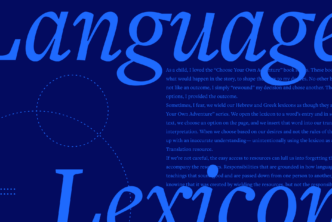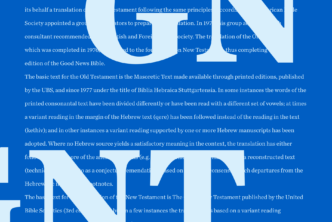For those of you wondering where I’ve been, for the last two weeks I was at the Wales Evangelical School of Theology (WEST) and Cambridge, teaching and attending conferences. At WEST I taught a class similar to the Mobile Ed course now on Pre-Pub, based on my Discourse Grammar of the Greek New Testament. It was a great time interacting with pastors and folks working in bible translation with Wycliffe.
The most significant part of my trip however, came at Tyndale House Cambridge. Tyndale played host to an important conference on the Greek verb, a topic hotly debated over the last 25 years. The purpose of the conference was not to add more heat, nor to heap scorn on certain views. Instead, our purpose was to answer a simple question: What would a description of the verb look like if we drew upon the latest research from the fields of linguistics, Classics, and NT studies? This approach was not an effort to ignore previous scholarship, but to avoid the pitfall of trying to address perhaps ill-formed questions.
The invited Classicists included Rutger Allan (Vrije Universiteit), Helma Dik (Chicago), Robert Crellin (Cambridge). The linguists included Stephen Levinsohn (SIL International), Randall Buth (Biblical Language Center), Amalia Moser (Athens), and Mike and Rachel Aubrey (Trinity Western). The scholars from within biblical studies included Peter Gentry (SBTS), Mark Dubis (Union), Nick Ellis (BibleMesh) Chris Fresch (Cambridge), Elizabeth Robar (Cambridge), and Chris Thomson (Cambridge).
Despite the varied disciplines and methodologies of the presenters, there was a surprising unanimity about key points, most significantly that Greek is best viewed as a mixed tense/aspect system with aspect being the more prominent of the two. The papers developed the typological basis for such a view as well as the morphological encoding and development that corroborate it.
Here was Steve Walton’s response, Honorary Research Fellow at Tyndale House, Cambridge:
It is rare that I attend a conference as well-focused and helpful as this. Combine that with high-quality scholarship from a mixture of people with expertise in Classics, Linguistics and New Testament Studies, and you have a delightful two days which was educative, stretching, engaging and stimulating. As a New Testament exegete, I learned much about the Greek verb from this conference, and have gained angles and perspectives which will inform my reading of the New Testament and other early Christian literature. I’m enormously grateful—and looking forward to seeing the book!
The conference was sold out, and I know many others wanted to be there. But you have an opportunity to do the next best thing: read the full conference papers that will be published in The Greek Verb Revisited volume that is now available for preorders. Peter Gentry of Southern quipped that he had learned more from the conference than he had from attending the last five SBL meetings! The Greek Verb Revisited will certainly not end the debate over verbal aspect, but it represents an important opportunity for deepening your understanding of these issues. Order your copy today!






